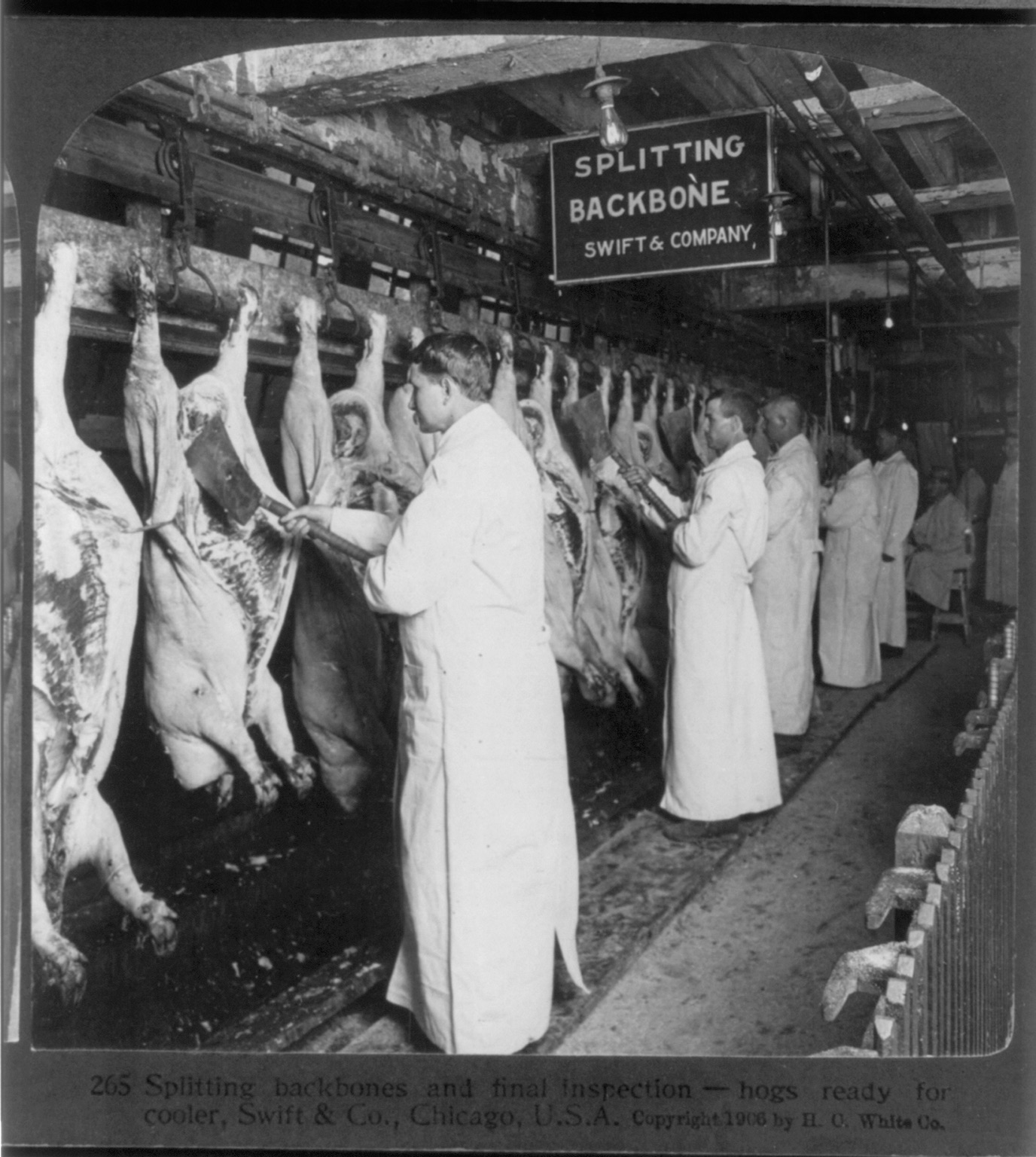OSHA asleep in The Jungle?
This weekend, the Dallas Morning News wrapped up an eye-opening, three-part series about work in the meatpacking industry.
The Morning News focuses on Cactus, Texas, which like many Southern towns is drawing immigrant workers to jobs that are dangerous and increasingly unregulated by government agencies like OSHA.
 How dangerous is meatpacking? Just as dangerous as when Upton Sinclair wrote The Jungle (which celebrates its 100th anniversary this year). Fast lines, sharp knives, toxic chemicals -- and lax education and enforcement -- result in one out of 10 workers getting injured at least once a year.
How dangerous is meatpacking? Just as dangerous as when Upton Sinclair wrote The Jungle (which celebrates its 100th anniversary this year). Fast lines, sharp knives, toxic chemicals -- and lax education and enforcement -- result in one out of 10 workers getting injured at least once a year.
And those are the official figures. Under the Bush administration, OSHA has cut back enforcement and changed the definition of injuries to make them appear lowers than they are:
The industry also maintains that total "recordable" injuries have declined 70 percent since 1990, a figure that critics say doesn't account for the full extent of problems inside plants. [...]
The agency inspects about 75 of the more than 5,000 meatpacking plants each year.
"It's been a long time since OSHA's been here," said one longtime employee at the Cactus plant who spoke only on condition of anonymity. "When OSHA is here, everything moves nice and slow." [...]
OSHA figures show a decline in meatpacking injuries and illnesses in 2002, the first year of new record-keeping that omitted a special category for repetitive-motion injuries.
The percentage of workers injured dropped to less than 12 percent, from 20 percent a year earlier.
And, as at hog giant Smithfield Foods in North Carolina, workers are routinely denied worker's comp for job-related injuries. Sometimes they're fired for even asking for compensation:
Twenty-six former employees of the Swift plant are suing the company for wrongful termination, saying they were let go as a result of filing workers compensation claims after being injured on the job. The workers list injuries ranging from slipping on greasy floors to falling off ladders to being struck by a forklift.
Swift has denied the charges in the suit, which was filed in a Dallas County court.
Many workers simply accept the risks even in dangerous situations, critics say.
Some immigrant workers, whether legal or illegal, hesitate to file complaints. Workers often don't know their rights or fear getting tied up with immigration authorities.
"We don't have a choice but to put up with it. Or let them fire us ..." said [a] longtime worker.
Despite hype around Fast Food Nation and other efforts to heighten public awareness behind what we eat, there seems to be little political will in Washington to rein in corporate agribusiness.
(H/T Confined Space)
Tags
Chris Kromm
Chris Kromm is executive director of the Institute for Southern Studies and publisher of the Institute's online magazine, Facing South.
